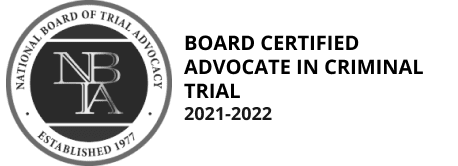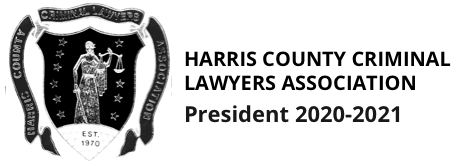Simply put, Mark Thiessen is a criminal defense all-star. You can feel the difference the second you step in the courtroom with Mark by your side. The time he has taken to build relationships and earn respect is clear.
Adam H, Google Review
View More Testimonials
If you or a loved one are facing DWI charges in Houston, Texas, you’re going to have a lot of new terminology thrown your way. Aside from hiring an experienced attorney, taking the time to understand some of the phrases and laws at play in your case is one of the most important things you can do as you prepare to fight for your rights.
Get plain-English explanations of some of the most common DWI terms directly from triple-board certified DWI specialist Mark Thiessen.
ALR Hearing
An ALR hearing is a civil proceeding following an arrest for DWI, during which your attorney can contest the Department of Public Safety’s (DPS) attempted suspension of your license. You must request a hearing within 15 days, or you will not be able to fight the suspension of your license at all.
Alcohol Classes (Alcohol Education Programs)
Alcohol Education Programs are classes mandated by a judge following a conviction for DWI. Think of them as tertiary punishments that follow jail time and fines, similar to how you would think of Community Service hours.
Blood Alcohol Content (BAC)
Blood Alcohol Content (BAC) is a measure of the amount of alcohol in a person’s bloodstream, expressed as the percentage of alcohol in your total blood volume. Your blood alcohol content is how law enforcement determines your level of intoxication, using flawed BAC tests to establish evidence during DWI arrests.
Blood Test
A blood test is one type of BAC test. Blood tests are generally much more accurate than breath tests, and are therefore much more difficult for an attorney to contest.
Continue reading about the subject here: breathalyzer vs blood test
Board Certified
Board Certifications are high-level credentials that attorneys can achieve by demonstrating a high level of proficiency in their field while also commanding the respect of their peers. Although Board Certifications do not come with any magic guarantees, looking for a board certified attorney* to take your case is just one way to know that you’re hiring a quality lawyer.
*Mark Thiessen is the only lawyer in America who is 3x board certified in:
- Criminal Law by the Texas Board of Legal Specialization
- DUI Defense by the National College for DUI Defense as approved through the American Bar Association
- DUI Law by the DUI Defense Lawyers Association
- Board Certified Advocate Criminal Trial Law by the NBTA Foundation
Boating While Intoxicated (BWI)
Boating While Intoxicated (BWI) is what it’s called when you get a DWI on a boat. There is a lot about DWI and BWI that are similar and Texas boating laws make it remarkably easy to get a BWI charge while out on the water.
Breathalyzer
A breathalyzer test is another type of BAC test, probably the most common one. Breathalyzers are a quick and easy way for the police to check how much you’ve had to drink. They are usually administered with ten times the expediency of a blood test. However, they tend to be notoriously inaccurate, and a great debate rages on about whether or not you should consent to taking one. Depending on your situation, it may be a better idea to blow than it is to bleed.
Continue reading: can you refuse a breathalyzer?
CDL DWI
Professional drivers or drivers that otherwise have a commercial driver’s license (CDL) can incur even more severe penalties if they are arrested for CDL DWI. The legal limit is even lower for commercial drivers (0.04% instead of 0.08%), and DWIs can result in immediate termination from their positions.
Chemical Test
A chemical test is used to measure the amount of a specific substance in a driver’s system at the time of arrest. Breath and blood tests are two types of chemical tests used by law enforcement during DWI arrests, but they will also subject drivers to urinalysis (urine tests) if they suspect that a driver is under the influence of drugs.
Deferred Adjudication
Deferred adjudication is a great option for people accused of DWI who want to avoid major criminal penalties and work towards a dismissal — the issue is that not many people qualify.
To qualify for deferred adjudication for DWI, you must plead guilty to a first time DWI with no aggravating factors before following a probationary period and complying with secondary punishments.
Dismissal
Your case can only be dismissed if the prosecutor decides to dismiss the case themselves, which usually means that they know they’re looking at a case that they cannot win.
Getting your first DWI in Texas dismissed often means your attorney finding a significant mistake made by law enforcement officers that would then nullify details of the arrest. Think lack of reasonable suspicion, inaccurate BAC tests, or officers not following procedure in a way that infringes upon your rights.
Drug Related DWI
You can be arrested for drug related DWI in Texas for anything from marijuana to prescription meds. Just because the police can’t smell beer in the car doesn’t mean that they’ll have a harder time arresting you for DWI.
If you’re pulled over under suspicion of drug related DWI, do not tell the police about any prescriptions, do not consent to sobriety testing, and call your lawyer.
DUI
While DWI is the standing charge for drunk driving in Texas, you can still get a DUI in the Lone Star State. DUIs are reserved for minors under the age of 21 driving with “any detectable trace of alcohol in their system.” Additionally, minors can also receive DWIs if their BAC is high enough.
Continue reading: The difference between DWI and DUI in Texas
DWI
DWI stands for Driving While Intoxicated, the standard charge for driving under the influence of drugs or alcohol in Texas. Being arrested for DWI in Texas means that law enforcement believed that you drove a vehicle in a public place:
- with 0.08 or higher blood alcohol content; or
- without the use of normal mental or physical faculties
DWI with Child Passenger
DWI with a Child Passenger is the charge for being arrested for DWI with a passenger under 15 years old in the car. Penalties for DWI with a Child Passenger are more severe than those for a basic DWI charge, with charges starting as state jail felonies that carry $10,000 fines.
Expunction
Expunction (also referred to as expungement) in Texas is the process of having a crime legally erased from your record. Expungement eligibility gets a bit complex, as there are many types of crimes that are ineligible, and many disqualifiers for the few crimes that are eligible. If you want to know whether you are eligible or entitled to an expunction, call your attorney’s office to find out.
Continue reading about Texas expunction eligibility
Felony DWI
Not all DWI charges are felonies, but charges for felony DWI come with enhanced consequences and aggressive prosecution. A DWI is often a felony if:
- It is your third or fourth offense DWI
- A child under the age of 15 was in the car
- The DWI involved an accident in which someone was injured
- The DWI involved an accident in which someone died
Horizontal Gaze Nystagmus
The horizontal gaze nystagmus test is one of many bogus field sobriety tests that the police use to attempt to prove intoxication. The nystagmus is the test in which the police officer shines a light in your eye and asks you to follow it. The secret about the horizontal gaze nystagmus (and all other standardized sobriety tests) is that the suspect is set up to fail.
Implied Consent
What does implied consent mean? The implied consent law is essentially why it is legal for the police to give you breath and blood tests if they suspect that you are driving while intoxicated. The law of implied consent states t3hat by getting behind the wheel of a vehicle, in the name of public safety, you are consenting to:
- Being able to produce a driver’s license
- Being able to furnish insurance
- Taking a blood, breath, or urine test
Intoxication Assault
Intoxication Assault is a felony DWI offense in which the suspect causes an accident that results in serious bodily injury, permanent disfigurement, or protracted loss or impairment to another person due to intoxication while operating a motor vehicle.
If you or a loved one have been arrested under suspicion of intoxication assault, you’re going to need an aggressive and experienced intoxication assault lawyer to keep your freedom intact.
Intoxication Manslaughter
Intoxication manslaughter occurs when a person’s driving while intoxicated results in the death of another person. Intoxication manslaughter cases are very complex, high-stakes situations, that not many lawyers have experience taking to trial.
Mark Thiessen has tried and won multiple intoxication manslaughter cases, and you can read about those cases here.
License Suspension
DWI license suspension in Texas means that your license will be taken away for a set amount of time. Texas law limits license suspensions to one year for everyone except for those convicted of felony DWI, for whom suspensions can last up to two years.
Getting your license suspended in Texas means that whenever your suspension is over you will be able to get your license back.
License Revocation
Getting your license revoked in Texas means that your license has been taken away, but it isn’t going to be given back. A revoked license means you are not allowed to operate a vehicle for any reason until you go through the process of getting a new one — if they even allow you to do so.
Miranda Rights
Your Miranda Rights are your constitutional rights from the 5th and 6th Amendments. They concern your right to an attorney, your right to a grand jury, your right to not be tried twice for the same crime, and your right to not make incriminating statements against yourself.
Police generally read you these rights before making an arrest, although there are exceptions to the rule.
Continue reading: Miranda Rights in Texas
No-Refusal Weekend
Texans have probably heard the term “no refusal weekend” before, usually in relation to holiday weekends during which more people are driving after a few celebratory drinks.
What are no refusal weekends? During no refusal weekends, law enforcement officers receive almost instant warrants for suspects of DWI who are refusing breath or blood tests. The name is misleading for a couple of reasons:
- You still have the right to refuse the test.
- Refusing a test on a day not falling during no refusal weekend will still likely result in a warrant, just a less expedient one.
Non-Disclosure
Non-disclosure in Texas refers to one of the ways you can seal the record of a crime after all legal processes related to it are complete. Like expunction, not all crimes are eligible for nondisclosure, and successfully filing for non-disclosure does not mean the charge becomes invisible in your history.
One Leg Stand Test
The one leg stand test is another standardized field sobriety test recognized by the National Highway Traffic Safety Administration (NHTSA) used to determine intoxication during traffic stops. This test, like the other standardized tests, contains too many instructions and too many clues for failure, and those who end up taking it often end up being arrested simply for not having Olympic-quality balance.
Open Container
The open container law in Texas states that you cannot have a “bottle, can, or other receptacles that contain any amount of alcoholic beverage and that is open, that has been opened, that has a broken seal or the contents of which are partially removed” in your vehicle. It also specifies that this open container must be in the “passenger” part of your vehicle, and therefore trunks and other locked storage areas do not apply.
Out of State DWI
Out of state DWI can get messy. Getting a DWI in a state that you don’t live in might require you to travel back to that state to appear in court or risk being arrested in your home state and making things a lot worse. Our advice? Partner with an experienced attorney in your home state and ask that things be handled remotely. A good attorney may be able to get the same results from afar and let your life continue uninterrupted.
Plea Deal
A plea deal (otherwise known as a plea bargain) occurs when a suspect makes a deal with the prosecution, getting their consequences lowered slightly for pleading guilty to their charges. While plea deals may seem attractive, they should never be the goal. A conviction is still a conviction, and your lawyer should be looking to win.
Prescription Drug DWI
It is possible to get a DWI for driving on prescription drugs. Many prescription medications alter your equilibrium, slow down your reaction time, and affect your sensory perception. If you are pulled over under suspected DWI, do not under any circumstances tell the police officers what or how much medication you are taking.
Continue reading: what prescription drugs can you not drive on?
SCRAM Monitor
SCRAM monitors are ankle monitors that detect alcohol in the wearer’s system using transdermal alcohol testing. Essentially SCRAM bracelets use a minuscule amount of your sweat to determine your blood alcohol content.
SCRAM monitors can detect very low percentages of alcohol and are also known to trigger false positive readings.
Standardized Field Sobriety Tests
Taking a standardized field sobriety test is generally a no-win proposition. These tests include the horizontal gaze nystagmus, one leg stand, and walk and turns tests, all of which were developed by the National Highway Traffic Safety Administration (NHTSA) in the 1970s.
The secret about these tests is that they are engineered to ensure failure. They are not an accurate barometer of intoxication and instead act as a failsafe to allow law enforcement officers to put suspects in jail.
Trial Attorney
A trial attorney is an attorney who takes a case with the intention of winning it. Many attorneys have no interest in going to court, and are instead interested in settling outside of court, doing some paperwork, and collecting a fee. Trial attorneys specialize in taking cases to court and arguing in front of a judge or jury to win cases for their clients. If you have a case that you cannot lose, you should be working with a trial attorney.
Walk and Turn Test
The walk and turn test is deceptively simple. They instruct you to walk heel-to-toe in a straight line, turn around and walk back. The secret is, like the other standardized sobriety tests developed by the NHTSA, it is also engineered to make you fail.
Administering tests that require intense concentration on a busy roadside, and in a situation wherein failure often means being arrested, is not a situation in which suspects are being given any opportunity to succeed.
Zero Tolerance
Texas has a zero tolerance policy for underage drinking, which means if you are a minor (under the age of 21) who is pulled over and asked to take a breath test, blowing anything above a 0 likely means a trip to jail.
Even if you’re 20 years old and your dad buys you a beer at dinner, if you get behind the wheel on the way home from the restaurant and are pulled over, you’ll more than likely be charged with a DUI.
NOTE: This information is not legal advice. It is provided for educational use only. If you need legal advice regarding a DWI offense in the State of Texas, please contact Mark Thiessen at 713-864-9000, or request a free case evaluation.














